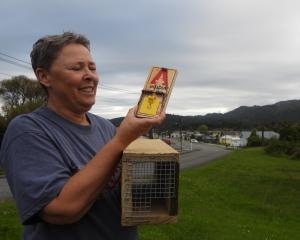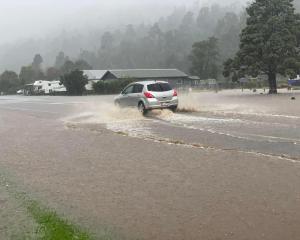The employer of a young Greymouth trainee builder who died when a bach he was helping to re-pile near Hari Hari collapsed on him, yesterday admitted a charge of exposing an individual to risk of harm or illness.
Rory Hayward (18) died in the workplace accident on April 11 last year.
Marcus Zintl, lawyer for the building company, which has been granted continued interim name suppression, said the company pleaded guilty to the charge after amendments had been made.
The company was experienced and had been engaged to re-pile the bach in a remote area west of Hari Hari.
The building had been raised on to jacks, and piles were placed underneath. The company informed staff of how long they should be under the building.
Work Safe NZ prosecutor Lucy Moffitt said heavy rain on the day had delayed work and it did not start until 12.30pm.
Mr Hayward asked about the middle of the bach sagging and was told it would not break.
He had been under the back of the bach, re-packing the jacks and then crawling out from under the building.
"At about 2pm, the building shifted and dropped with Mr Hayward underneath and he suffered fatal injuries, and would have died instantly," Ms Moffitt said.
Work Safe investigated and found the jacks did not fail and the company had failed to follow reasonable practice procedures.
Mr Zintl said his client was remorseful.
"This was a tragic accident with life-long consequences for all involved and connected."
The company was willing to engage in restorative justice and asked for a continuation of interim name suppression.
The prosecution took a neutral stance on name suppression.
Mr Hayward's family sat in the back of the courtroom throughout the hearing.
Judge Charles Blackie convicted the company and adjourned the case for sentencing on September 7, and called for the victim impact statements, reparation reports and company financial details to be made available before then.
Judge Blackie said it was unusual for anyone convicted of a crime to get name suppression.
"It is normal practice to make the name available to the public as it is a matter of public interest in regards to health and safety."
In this case there had been a fatality, the victims were supportive of the suppression continuing and as there were other grounds, one of which was medical, he was prepared to grant name suppression until sentencing.
"The application is granted at this stage, but at sentencing it will be an entirely different matter."











